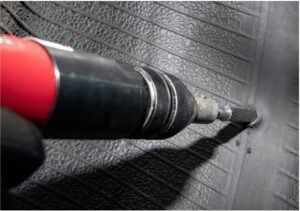TRC Makes the Lifecycle of Rubber Sustainable
One of the tenets of sustainability is caring about the lifecycle of a product. That’s something Technical Rubber Company (TRC) has been doing since its founding more than 85 years ago.
As industrialization took hold worldwide, reliance on rubber in industries ranging from tires and automotive to agriculture, mining, construction, and manufacturing, grew.
Working in the rubber industry, TRC founder Charles Cornell saw a need for a better tire repair product. Cornell launched Technical Rubber Company with a vision of innovating rubber products that extract value, extend product life, and move the economy.
Cornell patented a cold vulcanizing process that repaired tires without heat, an innovation that led to a complete line of tire and tube repair products, setting the stage for product breakthroughs and innovation that have improved tire repair and kept tires safely on the road.
 Driven by a commitment to supporting the entire lifecycle of rubber, TRC continues this vision today through their 4r vision of Repair, Reuse, Recycle, and Repurpose.
Driven by a commitment to supporting the entire lifecycle of rubber, TRC continues this vision today through their 4r vision of Repair, Reuse, Recycle, and Repurpose.
“Our 4r strategic vision is to create and extract value from materials that were formerly considered to be at the end of their useful life,” Brent Klomparens, Sr. Director of Customer Experience, said.
Headquartered in Johnstown, Ohio, TRC is made up of a family of brands that each specialize in creating products and solutions that fulfill their 4r vision while driving the circular economy. The TRC business family includes TECH Tire & Wheel, Pang Industrial, AMS (Advanced Mobility Solutions), and Salvadori Recycling.
All TRC Brands are committed to the 4rs with the shared goal of helping preserve the environment by extending the useful life of rubber goods and keeping end-of-life rubber out of landfills.
“Every year we repair 150 million tires thereby extending the useful life of the tire. With more than seventeen million tires retreaded annually our footprint of repair is over 96 percent,” Tim BeVier, TRC’s National Account Business Development Manager for North America, said.
TECH Tire and Wheel products are used to repair and retread everything from passenger cars to earthmovers in order to extend their lifecycle and productivity. In one of its latest innovations, TRC combined the technologies of two of its brands creating a new repair product that withstands both heat and the many times it goes through the retread process.
Hand-in hand with repair materials and products, training and education are top priorities at TRC. “Our goal is to educate consumers about repair and make sure our tire shop and automotive service customers know how to make a proper repair,” TRC Customer Experience Director Brent Klomparens, said. “We want to teach each customer how to safely keep tires on the road by making education easily accessible.”
TRC does this through different channels of training and education. TECH University offers three ways to train: in-person at TECH’s training facility in Johnstown, Ohio which features the latest in tire repair technology; self-paced on-line training through TECH University’s comprehensive library of tire and wheel repair training videos; or by a certified TECH trainer onsite at your shop, garage, or vocational school. TECH is also teaming up with the Tire Industry Association to offer Certified CTS Training courses at the TECH Training Center with hands-on learning from a certified tire repair instructor.
When consumers have questions like “I have a nail in my tire what do I do?” TRC’ s new Blog Post program makes sure they have access to proper tire repair instruction, why it’s important, how it extends tire life and keeps drivers and motorists safe,” Klomparens said. “We’re getting 10,000 search engine views a month helping to teach customers and consumers how to safely keep tires on vehicles.”
In keeping with TRC’s heritage of innovation, the company launched Advanced Mobility Solutions (AMS) in 2021 offering autonomous tire monitoring and management for fleets.
Using best of breed tire sensor solutions, AMS provides powerful tire health data fleet managers and owners can use to get the maximum safe life out of every tire, eliminate catastrophic tire failures, and reduce annual tire consumption by 10-20 percent, all of which keeps tires out of landfills.
Acquired by TRC in 1998, PANG Industrial’s rubber repair materials, specialty adhesives, and conveyor belt splicing tools and equipment allow worn or damaged conveyor belts to be repaired and reused instead of being replaced and sent to dumps.
“When TRC added the Salvadori Recycling Solutions brand in 2016, it took the company one step closer toward closing the loop that is the circular economy of rubber,” Klomparens said.
Salvadori designs, engineers, manufactures, and has installed equipment in over 50 facilities worldwide, Genti Bardhi Salvadori’s Government Affairs & Business Development Leader said.
“Our clients de-bead and downsize scrap tires into raw materials which are then converted into a wide variety of earth and consumer friendly, useful products such as green roof tops, noise and vibration reduction systems, erosion products, highway barriers, or molded into products such as parking curbs, playground equipment, and trash receptacles.”
Moreover, Salvadori has taken a leadership position when it comes to regulation and legislation regarding end-of-life tires both at the State and Federal levels. Bardhi, who serves on many industry government affairs boards and committees said “It’s rewarding to have a voice in defining regulation and legislation that creates a positive environmental and economic dynamic when dealing with end-of-life tires” stated Bardhi.
Solutions-oriented Salvadori employs a five-step product development process which begins with an “Ideation” session to help clients uncover potential products that extend their current product lines or enhance an existing product’s performance due to the attributes of recycled materials, allowing them to develop new, innovative products designed with manufacturability, the voice of the customer and pricing analysis in mind, all of which accelerates speed to market and leverages the lower cost and recyclability of crumb rubber raw materials.
“One client who amassed a significant amount of crumb rubber turned to Salvadori to develop products that consume larger quantities of their crumb versus selling it for tire derived fuel allowing them to generate dollars versus pennies per pound,” Bardhi said.
Through Repair Recycle Repurpose and Reuse, TRC brands continue to keep millions of tires safely in service all over the world — tires that may have been scrapped well ahead of their usable lifecycle. TRC’s family of brands live their 4r vision everyday by impacting every facet of the new circular economy.
© Scrap Tire News, March 2024






